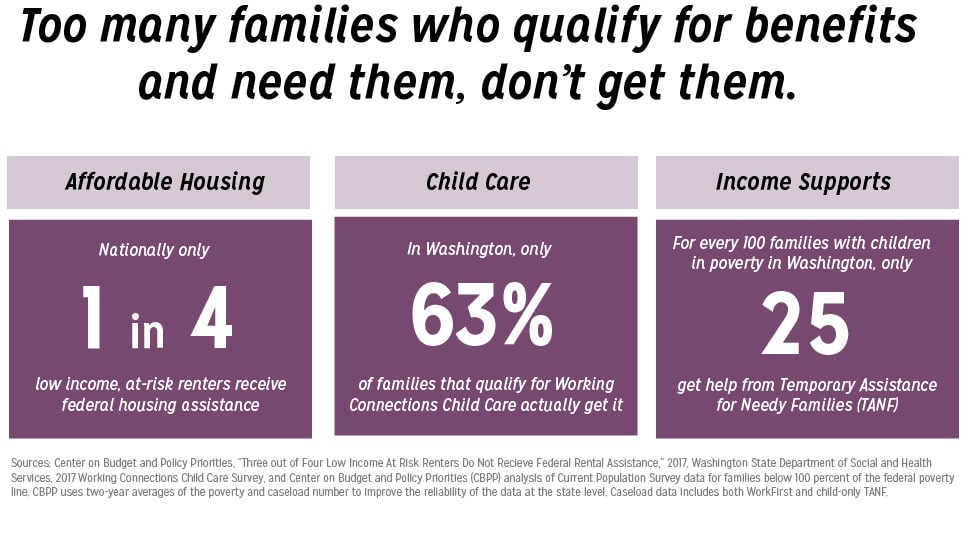Washington’s economy is growing, and unemployment is low in many areas throughout the state. That is good news for many people who are looking for good jobs. However, far too many families in our state are falling behind, even when they are working hard to get ahead. This is especially true for families with children.
Our new policy brief, “One step forward two steps back: Why families fall behind while working to get ahead,” examines how economic conditions and state policies create obstacles for parents who work to climb the economic ladder and recommends steps policymakers can take to remove them so more families can thrive.
While poverty reduction programs help families work and move up, the report finds that parents are either not getting any of the support they actually need or are getting too little of it. Most parents who qualify for housing assistance, child care, and WorkFirst/Temporary Assistance for Needy Families do not get these benefits. Similarly, key programs like WorkFirst and the Supplemental Nutrition Assistance Program (SNAP) do not provide working parents with enough income to lift them out of poverty.
Click on image to enlarge.

(Nationally, only 1 in 4 low income, at-risk renters receive federal housing assistance. In Washington, only 63% of families that qualify for Working Connections Child Care actually get it. And for every 100 families with children in poverty in Washington, only 25 get help from Temporary Assistance for Needy Families.)
When parents don’t get the support they need, it can actually cost them more money to work. Child care costs or longer and more-costly commutes from affordable-living areas to urban centers can also make it harder for them to keep their jobs. Low-income workers are also more likely to have jobs that require irregular hours, making it even harder to manage child care and other personal arrangements. So just when they are starting to earn more or get more hours, they fall behind.
Washington policymakers can and should take steps to remove obstacles for parents to work and support their families. They should strengthen and expand public benefits so that they provide families with enough support to meet basic needs and reach more of the families who need them. They should also implement solutions to improve job quality and provide more families with opportunities to get stable, good-paying jobs.
Read the policy brief and learn about the specific policy solutions available to state lawmakers.